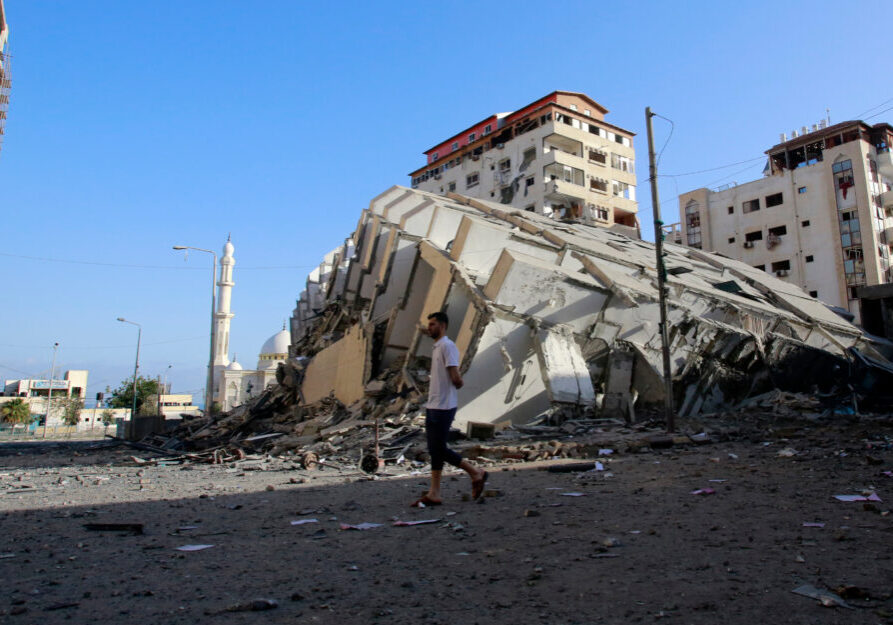Australia/Israel Review
Media Microscope: “It’s not you, it’s me.”
Aug 1, 2005 | Tzvi Fleischer
“It’s not you, it’s me.”
“It’s not you, it’s me,” went up the cry repeatedly in the days following the July 7 London bombings. Across the airwaves and the nation’s broadsheets, journalists and intellectuals alike got straight to the root of the problem. They declared, in stark contrast to the conclusions of political leaders and intelligence sources, that London and other terrorist attacks in recent years were in fact the fault of Western foreign policy. Instead of blaming the extremist ideology which actually motivated the attackers, the apologists came from across the globe eager to take the blame for the bombings (or at least assign it to their own political leaders with whom they disagree). It appears that for many commentators the Muslim attackers were simply robot-like organisms incapable of moral choice, who are biologically driven to indulge in the mass-murder of innocent people when exposed to policies with which they strongly disagree.
Scott Burchill, a senior lecturer in international relations at Deakin University, writing in the Australian Financial Review (Jul. 15) made an urgent call for Australians and other Westerners to “face up” to their nations’ foreign policies and “stop asserting the superiority of our values.” He went on to insist that otherwise “we are unlikely to bring these attacks to an end.”
University of Chicago political science professor Robert Pape similarly argued in The Age (Jul. 23) that the West’s foreign policies and the “presence of foreign combat forces is the principal recruiting tool used by terrorist leaders to mobilise suicide terrorists to kill us.” Citing his personal research studies that examined 71 cases of al-Qaeda suicide terrorism from 1980 to 2004, Pape found that “one-third of al-Qaeda attackers that are more transnational in nature are powerfully motivated by anger over Western combat operations on the Arabian Peninsula.” Of course he discounted the inspiration for the remaining two-thirds of the suicide bombers. The London attacks, he insisted, are part and parcel of this pattern — “the principal factor driving support for suicide terrorism among British Muslims was not an evil ideology but deep anger over British military policies on the Arabian Peninsula.” It is puzzling what that policy might be, as there is no British military presence on the Arabian peninsula (Iraq is not part of the Peninsula). Also, if there is a direct causal link between “occupation” and suicide bombings as Pape alleges, the absence of the huge numbers of expected Tibetan suicide bombers remains a mystery.
In his column in The Australian (Jul. 12), ABC compere Philip Adams urged readers to “be clear about it: the people who died in the subway tunnels and on the bus were victims of the Iraq war … Had [Blair] not misled his nation into that murderous folly of an invasion, the people would have walked off the trains instead of being carried off on stretchers. Or had their body parts collected in bags.”
Tariq Ali, the radical leftist British author, likewise jumped on the bandwagon in the Sydney Morning Herald (Jul. 11). Shifting blame from the Islamists to the policy makers, he wrote, “It is safe to assume the cause of these bombs is the unstinting support given by New Labour and its Prime Minister to the US wars in Afghanistan and Iraq…the real solution lies in immediately ending the occupation of Iraq, Afghanistan and Palestine.”
The Age reprinted an article by Guardian trainee journalist Dilpazier Aslam but failed to mention that Aslam is an active member of Hizb ut-Tahrir — a political party that, according to the BBC, “promotes racism and anti-Semitic hatred, calls suicide bombers martyrs, and urges Muslims to kill Jewish people”. (The Guardian, but not The Age, subsequently did announce Aslam’s affiliation, and fired him.) Aslam’s Jul. 16 column criticised the bombers for having adopted a flawed “way to express your political anger” but justified the attacks as an understandable response to the war in Iraq. Aslam further warned that Muslim community leaders’ failure to do more to oppose the Iraq war will undoubtedly lead to more attacks: “The don’t-rock-the-boat attitude of elders doesn’t mean the agitation wanes; it means it builds till it can be contained no more.”
While all of the above are opinion pieces properly situated on the opinion pages, the sheer prevalence of this morally bankrupt analysis, which professes understanding for, or accepts the inevitability of, one of the most obviously evil acts imaginable — the deliberate and completely indiscriminate mass-murder of totally innocent people — is worrying. While no view should be excluded from public exposure, the fact that several newspapers had 50% or more of their opinion pieces unwilling to judge the conduct of the perpetrators except in terms serving their own views on Western foreign policy is a worrying indicator of how far out of the mainstream aspects of the media and academia have become.
Tags: Europe






